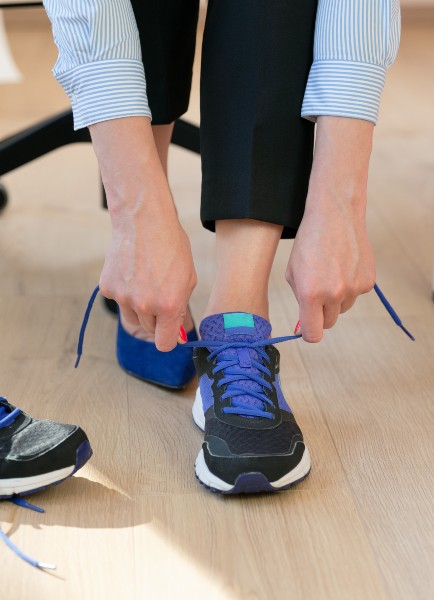By Erin McClernon
NALP Bulletin+
November 2021
In August 2017, the National Task Force on Lawyer Well-Being (now the Institute for Well-Being in Law, or IWIL) published The Path to Lawyer Well-Being: Practical Recommendations for Positive Change (the report). This data-rich report illuminated serious mental health and other struggles in the legal profession. It also validated the very real experiences of countless legal professionals who suffer, often alone and in silence, with diminished well-being of varying degrees of severity. For those individuals in particular, the report was confirmation that they are not alone. To the contrary, they are members of a demanding, often unforgiving profession in which self-care, particularly for mental health, is dismissed (at best) or actively discouraged (at worst). And many pay the price.

A Movement is Born
As a practicing litigator of 12 years, I knew instantaneously that the report was the start of something big — for the profession and for myself. Four years later, we are in the midst of a rapidly-growing well-being movement, bolstered by a global pandemic that brought our profession’s struggles into even sharper focus. And I am no longer practicing law, having chosen (like others I know) to dedicate my professional life to this cause and to the development of lawyers.
For anyone curious about the well-being movement’s trajectory, it is safe to assume that a fundamental culture shift is both underway and here to stay in our profession. For instance:
A Movement for All
While the original report focused on the emotional, intellectual, occupational, social, physical, and spiritual dimensions of well-being for practitioners, the clear trend is to extend well-being efforts to legal staff and other non-practicing members of the profession. At Ogletree Deakins, where I serve as the Professional Development Manager and facilitate the firm’s Well-Being Working Group, we design well-being initiatives and programs that benefit and appeal to lawyers and non-lawyers alike. Well-being is important for everyone, not just attorneys.

Bringing the Movement to Your Organization
For organizations wanting to create, pilot, or enhance a well-being program, IWIL’s Well-Being Week in Law (WWIL) — held annually the first week of May — presents the perfect opportunity. With some creativity and cross-department collaboration, it’s possible to create a standout (even budget-friendly) event that highlights all six dimensions of well-being.
For instance, in 2021 Ogletree Deakins developed a customized week-long WWIL experience for the entire firm. We started with a dedicated intranet portal, which served as the central event “hub.” From there, users could register for the week’s live events (ranging from 15-minute desk yoga to a keynote presentation on reigniting your passion for work) and access a daily collection of specially-curated material, including:
In addition to high levels of interaction with the portal and live events, many local offices hosted their own well-being festivities. Coloring contests, virtual crafting, “feel good” song playlists, gifts of office greenery for everybody’s desk, healthy recipe cookbooks, and photo reels of colleagues enjoying “awe walks” together or with their families were some of the highlights shared from our offices around the world. In 2022 we look forward to some friendly competition when we introduce a traveling “Champions for Well-Being in Law” trophy into the mix.

The Time is Now
The well-being movement is fueled by an intense desire to create environments where legal professionals thrive, rather than merely survive. There is no time like the present to improve lives (and your business) by embracing the movement and providing new levels of support to your most valuable asset — your workforce.
Erin McClernon is the Professional Development Manager at Ogletree Deakins. She is also on the IWIL Programming Committee, the facilitator of the Education Working Group for The Missouri Bar’s Lawyers Living Well initiative, the chair of an annual Well-Being Summit, and a liaison to the Kansas Task Force on Lawyer Well-Being. This article was submitted on behalf of the Well-Being Section.